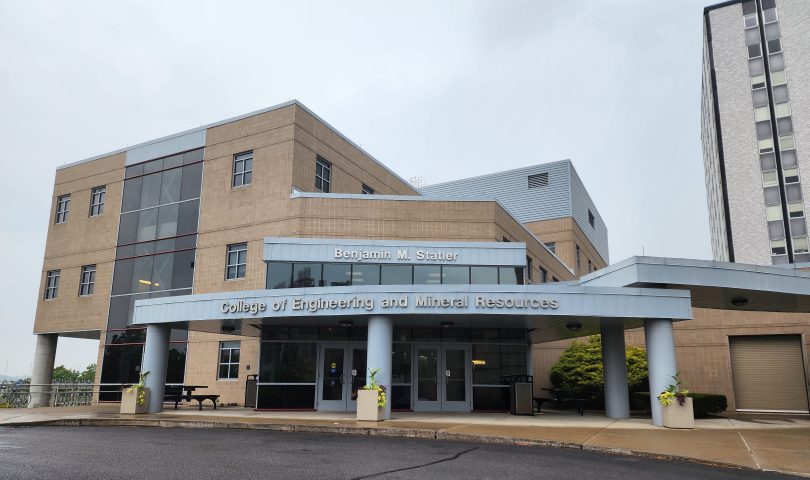MORGANTOWN – WVU is spearheading a three-year project funded by the U.S. Department of Energy to develop innovative hydrogen fuel technology to help decarbonize the food and beverage industry.
With the $3 million grant, WVU and its partners will develop a flexible fuel boiler capable of burning hydrogen, natural gas, biogas and other manufactured gases. The industrial boiler will be designed to produce hot water and steam for food and beverage process heating needs.
WVU’s project is one of 40 DOE-funded projects totaling $135 million aimed at moving the U.S. toward the Biden administration goal of next-zero emissions by 2050.
Project lead Hailin Li, professor in WVU’s Statler College of Engineering and Mineral Resources Department of Mechanical and Aerospace Engineering, explained how it came about.
DOE put out the proposal call at the end of last year, he said. He organized the team, consisting of WVU, the Oak Ridge National Laboratory (ORNL) and the Gas Technology Institute (GTI). They put together the proposal for a hydrogen flexible fuel furnace that can burn anything from pure natural gas to a gas-hydrogen mix, to pure hydrogen in any ratio.
The idea behind the flex fuel, he said, is that hydrogen is expensive and not yet readily available in commercial quantities. The flex technology makes it easier for industry to make the transition.
They are developing a 1 million btu-per-hour boiler, he said, as a demonstration model. A full-size industrial boiler would be larger,
Another important feature of the project, Li said, is the “economizer.” It recovers waste energy from flue gas to heat intake air, increasing current boiler efficiency to 98%.
ORNL, he said, will develop the burner. WVU will develop the heat exchanger and do preliminary testing. GTI will do final proof of technology demonstrations.
Wisconsin-based Convergent Science, a computational fluid dynamics company, will provide the simulation software.
Two Morgantown businesses are also participating, Li said: Mountaintop Beverage, which will provide access to its facility to make sure the boiler meets the requirements of the beverage industry, and Neighborhood Kombuchery. The team will look at how they produce their kombucha beverages in order to help them reduce their carbon emissions.
“The whole goal of the project is to minimize and eventually eliminate the carbon emissions,” he said.
He expects the project could get started in January, he said, but perhaps as early as October.
Other partners are SoCal Gas; Utilization Technology Development, a research organization composed of 20 natural gas distributors; and Fulton, a heat transfer equipment maker.
“It’s a perfect example of collaboration,” Li said – a multi-disciplinary partnership and the kind of endeavor perfect for WVU’s mission.
Xingbo Liu, Statler College associate dean, helped coordinate the project. He works closely with DOE and the other partners, he said. When he saw the project opportunity, he reached out to his longtime collaborator at ORNL who had been working in this area.
They learned about Mountaintop and went to look at it. Mountaintop provides products for Pepsi and Starbucks, he said, and all three are seeking to lower their carbon footprint. The people at Mountaintop “were excited because we could help them achieve their goal.”
Liu has his own interest in hydrogen technology, he said. WVU recently announced that he won the DOE Hydrogen Program’s award for Hydrogen Production Technologies for “outstanding contributions to developing high-performing, efficient, and durable intermediate-temperature proton conducting solid oxide electrolysis cells.”
He put together the team and lined up the partners.
“This is important for the college and the university,” he said. It’s one way to help the state and the industry move to a clean energy future.
For WVU, he said, the state’s only R1 research institution, research is not just a way to spend grant money – it’s the future of education.
COVID showed that much of higher education can take place online, he said. But cutting edge research brings students here to learn new things not available in books or online. “To me that’s the future of education and research.”
Tweet David Beard @dbeardtdp Email dbeard@dominionpost.com




